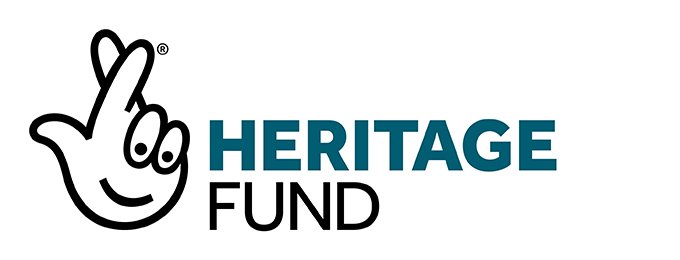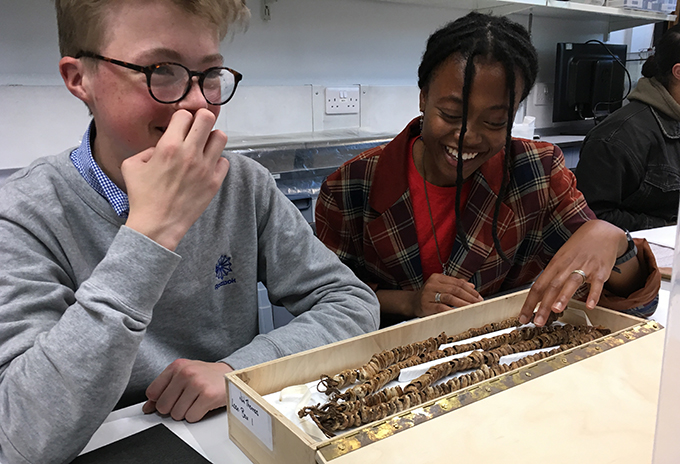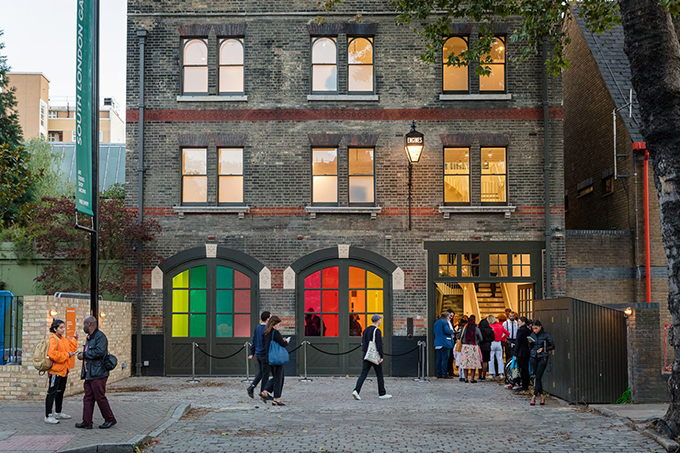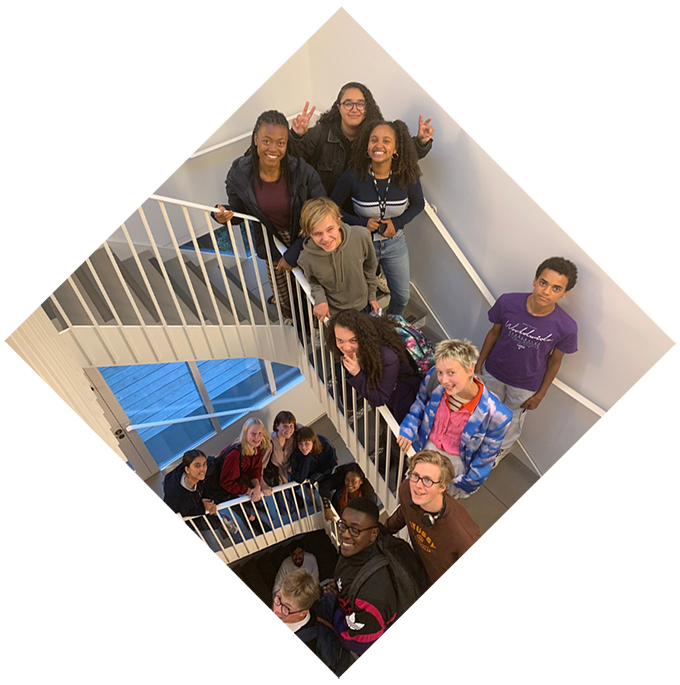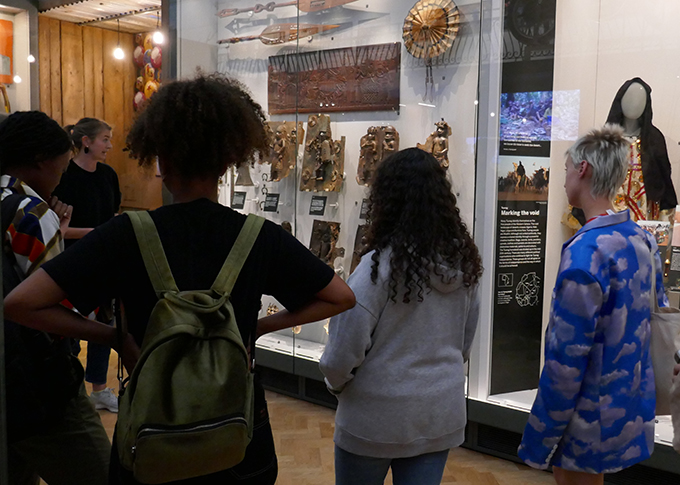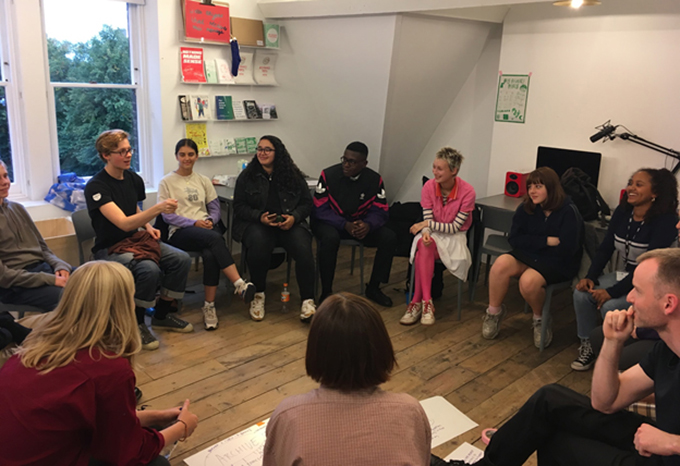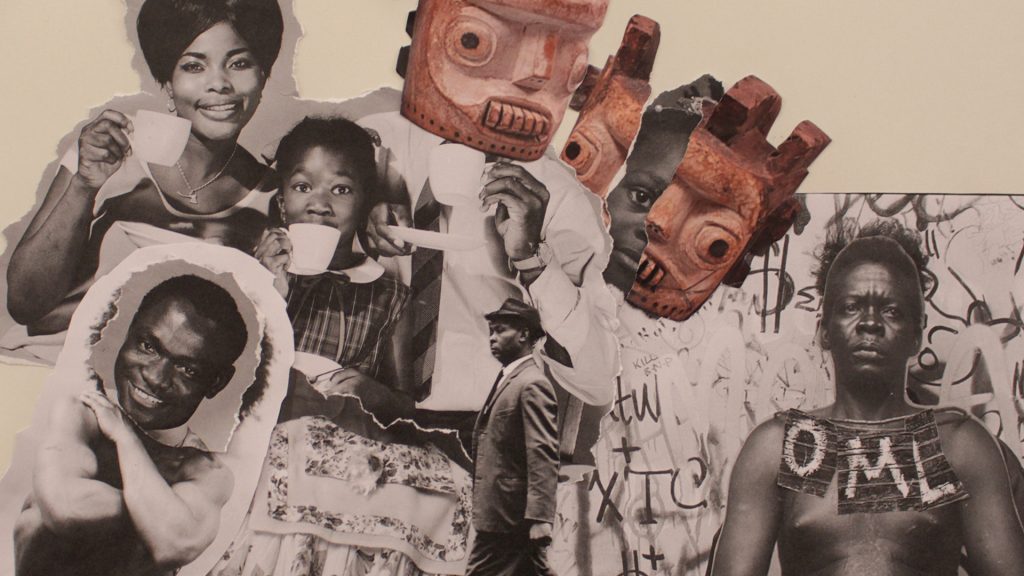
This is the latest is a series of blogs reporting on our collaboration with the Art Assassins, the youth forum of the South London Gallery. The programme includes a number of workshops run by project partners, each focusing on a different aspect of the N. W. Thomas archives. UCL’s Museum Conservation programme will be helping the Art Assassins work with artefacts; the Igbo Studies Initiative will help unlock the sound recordings; and Autograph will help the participants think about photography and representation.
Autograph started in Brixton in the 1980s as the Association of Black Photographers. They are now based in a fantastic gallery and archive space in Shoreditch. Autograph’s mission is to enable to public to explore issues around identity, representation and social justice through work produced by artists who use photography and film. It has a remarkable photographic collection dating from the 1860s to the present day.
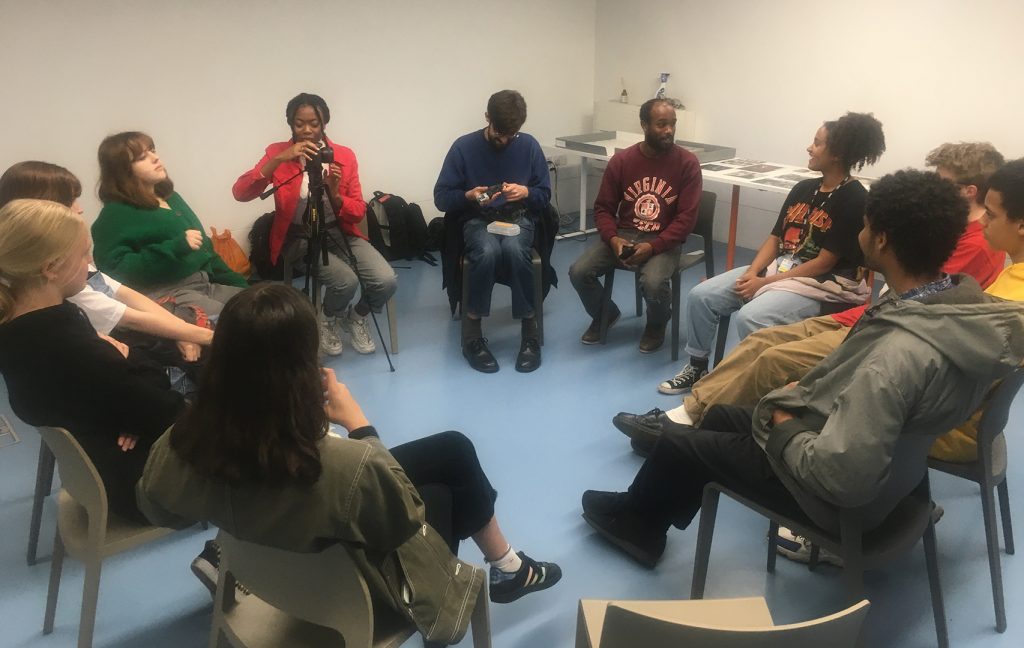
One of the big questions that inevitably surfaces whilst working with anthropological archives is the issue of representation. Since their first encounter with the Northcote Thomas archive, the Art Assassins have been debating this issue and thinking about how it informs their response to the materials. This has led them to devise a manifesto to guide them:
- The problems we encounter via the archive should be reflected in our work
- We will document our understanding of the archive as it changes over time
- We will consider our individual relationship to the archive given our different backgrounds
- We will avoid replicating the problematic methodologies associated with the archive
- We will question what the value of the archive is for young people today
To explore this further the group have participated in two workshops with Ali Eisa, Public Programme Manager at Autograph, which looked at how people and communities are represented in contemporary photographic archives. We asked Art Assassin, Jordan Minga, and Ali Eisa to talk a bit more about what we got up to in the workshops.
Can you give some background to Autograph as an organisation and the archive that it has collected?
Ali: Autograph shares the work of artists who use photography and film to highlight issues of identity, representation, human rights and social justice. Since its foundation in 1988, Autograph has collected photographic material, which reflects our mission: to use photography to explore questions of cultural identity, race, representation, human rights and social justice. The Archive constitutes Autograph’s permanent collection of photography, and covers key periods in the formation of culturally diverse communities in Britain, including the post-war Windrush generation and Victorian era. It contains photographic works made by renowned fine artists, social documentary and high street studio photographers, plus personal family albums and vernacular imagery.
What did you do with Ali in the first session at Autograph?
Jordan: The first thing we did at Autograph was explore the current exhibition of work by the British-Liberian artist Lina Iris Viktor. After that we had the pleasure of getting to look at three portfolios of photographs in the Autograph collection. We discussed the compositions and the intentions of the photographers.
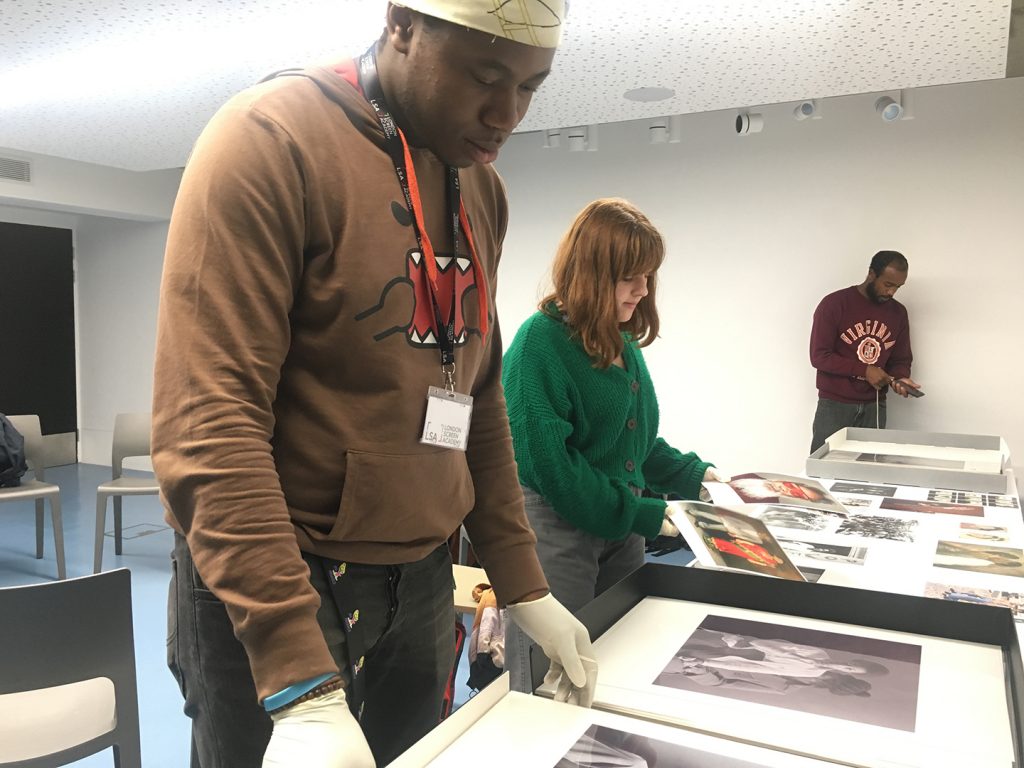
What was the intention of introducing the Art Assassins to the different collections that Autograph has collected in its own archive?
Ali: The intention was to introduce the Art Assassins to a contemporary photographic archive that can give them a critical perspective on issues of representation, race, identity, human rights. This was seen as important in the project because the young people are responding to a colonial era archive, which from a contemporary perspective is highly problematic in its representation of the black subject. So, we were interested in generating a critical conversation with the young people around issues of representation, history, memory and identity with the intention of developing how they look at the colonial archive, and what kinds of questions they might ask of it.
At the first session you said that you’d never really looked into the lives of young black people in London in the past. What did you find interesting about seeing those photographs?
Jordan: I have always had an interest in the history of the area I live in. We looked at a series of works entitled Lovers’ Rock by John Goto. It was interesting to learn that the subjects of the photographs were young people from a Youth Centre in South London. It helped me discover the fashion of young people around my age in that time period. I can now imagine myself in the 1970s!
In the second workshop the Art Assassins made collages that combined the imagery from the Autograph archives and the Northcote Thomas archive. How did the collage exercise try and address the difficulties of representation in the images?
Ali: The collage exercise was really great because you are forced in the making of the work to put different images into conversation. It also allows you to layer images on top of one another, to give them new ways of relating and new contexts to look at them. It was an activity that allowed the young people to tell their own story about these images and how they think we might start to view them. What was really interesting was how easy it was to start mistaking the Northcote Thomas images from the Autograph ones, once they had been creatively collaged. It showed how important a creative response is to telling new stories and thinking forward in the project, how this group of young people can rethink and reframe the Thomas archive to say something about our contemporary world.
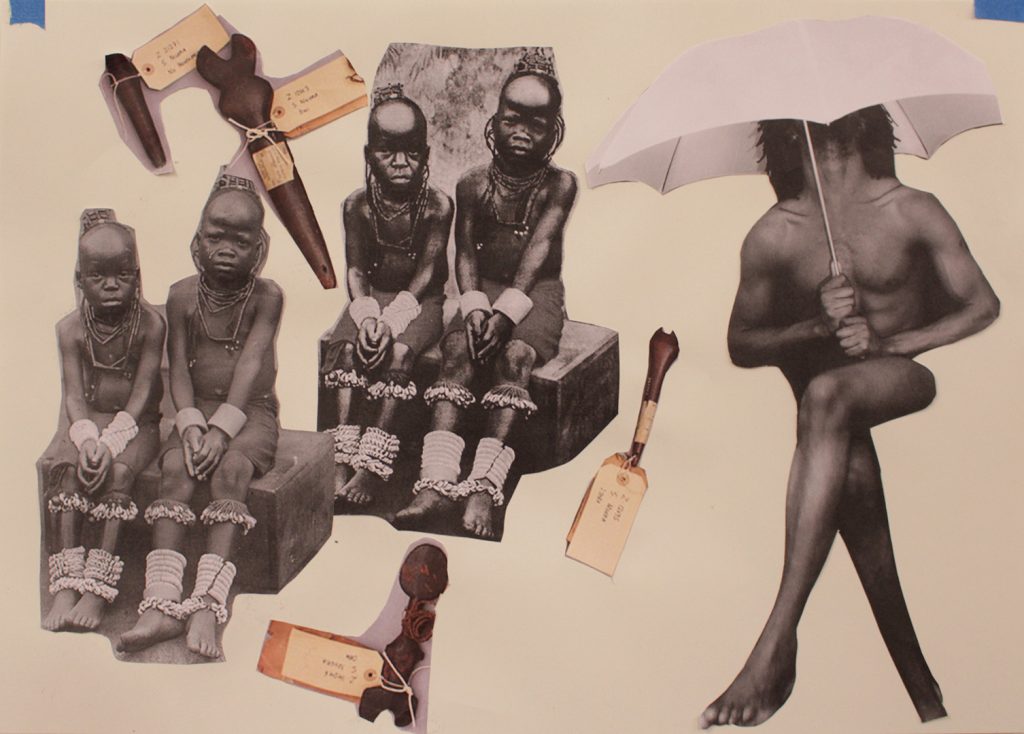
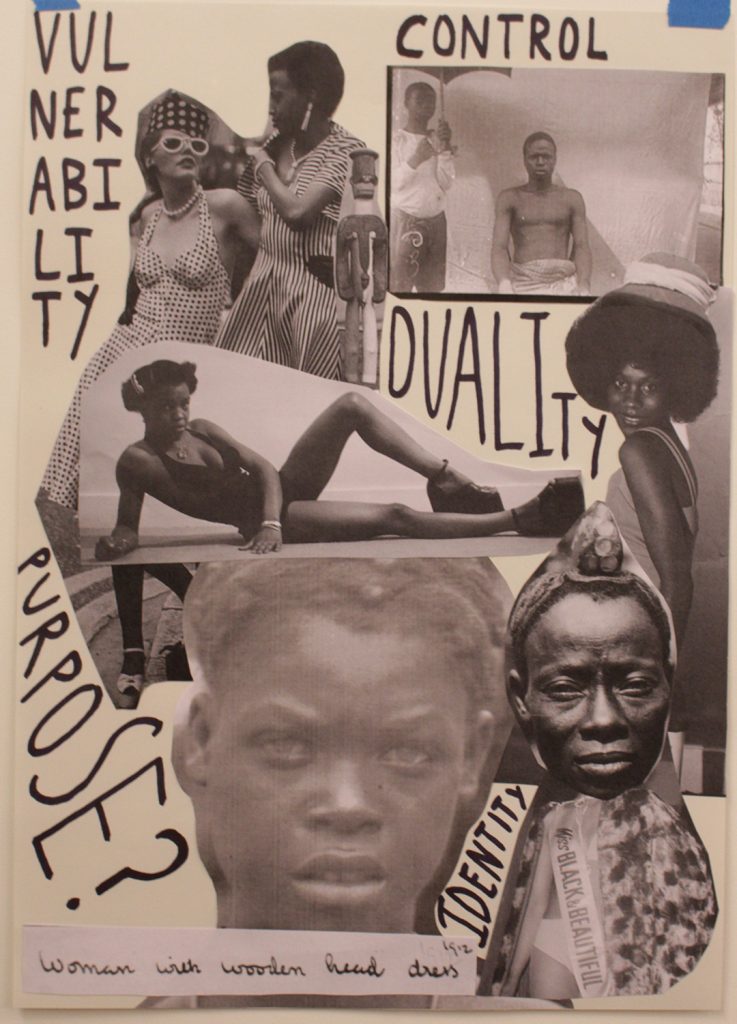
Jordan, how did the collage exercise change the way you thought about the photos from the different archives?
Jordan: The collaging exercise showed me a lot about he the contrast between the contents of the archives. Through college, I got to play with the images. Changing the symbolism of the photography was fun as we gave them new meanings.
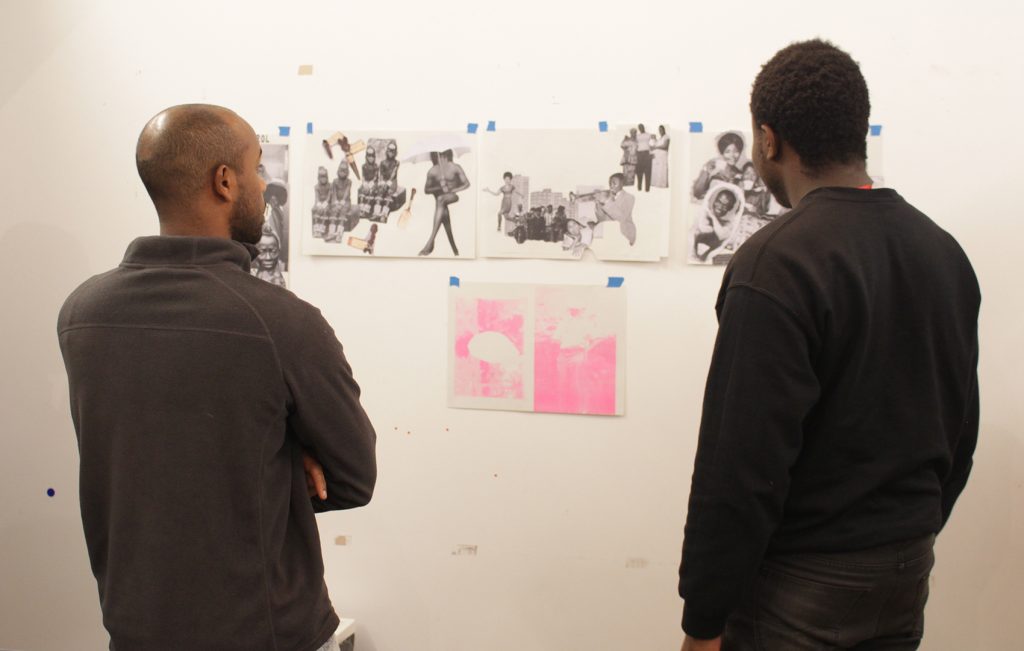
Find out more
You can read more about the Art Assassins’ project on the South London Gallery website or follow them on Instagram @slg_artassassins.
Join the Art Assassins
The Art Assassins welcomes new members. If you are aged 14-20 and able to meet regularly at our base in Peckham, South London, please join us! Drop us an email at [email protected]
